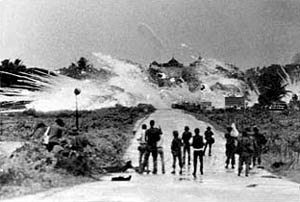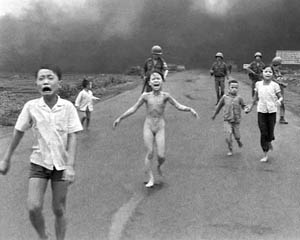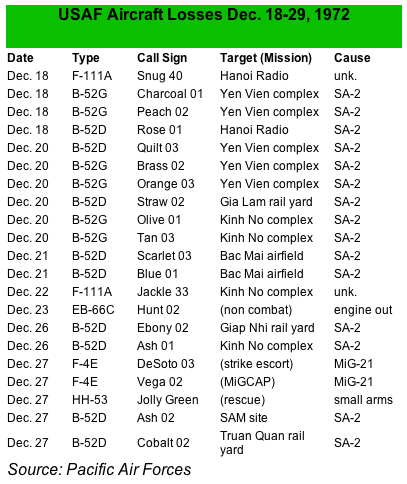I half-suspected NPR to exhume Henry Kissinger (he is dead, isn’t he?) the other day when they did a promo about a story on “Iraqization,” but no, they spared us the sonorous tones of Doctor Strangelove, only to give us his pin-headed sidekick, former Nixon Defense Secretary, Melvin Laird.
Since it’s clearly too much to expect National Pentagon Radio to invite an eminent historian like Howard Zinn or someone of similar ability onto our airwaves to explain the likely pitfalls of Bush’s plan to hand over Iraq to our hand-picked Iraqis, it falls to the Itinerant Scribbler Corps to put Laird’s interview into historic perspective.
“Eventually we have to get out as soon as our job is done.” Laird began, omitting, of course, any mention of exactly what that job might consist of — finding WMD’s, freeing Iraqis from despotic torture chambers, or militarily securing a strategic, oil-rich region?
“But we can’t walk away from the conflict now,” he cautioned. “We will be able to start withdrawal of our forces as the Iraqi forces come into readiness. Just because we get our force level down in Iraq doesn’t mean we can walk away. [All together now.] Or the losses we suffered will be in vain.”
When the reporter introduced the term “Vietnamization,” Laird interrupted her to say eagerly, “That’s a good term. I coined that term. And it worked very well, I think.”
With images of U.S. helicopters evacuating people from the roof of the U.S. Embassy in Saigon coming to mind, I heard the reporter counter that perhaps in the end it didn’t work. Gentleman Mel interrupted again to say, “Vietnamization did work. I mean the forces of the South Vietnamese were doing very well but they had to have U.S. support to carry on the war.”
Finally, answering a question concerning whether Bush could count on sufficient popular support to make “Iraqization” work, Laird allowed: “I think we need to have more straight talk in order to show real leadership in this field.”
This is news worth the pain of listening to a fall pledge drive?
 White Phosphorous and Napalm Bombs Explode near the Village of Trang Bang. Photo by AP. (Cary Nelson, “A Vietnam Photo Essay”)
|
One would think that having to hear that 800 number in our sleep would at least have earned us the right to learn some basics of this Vietnamization business: that in order to quell a growing antiwar sentiment spilling into the streets, Nixon decided to change the color of the corpses in Viet Nam by replacing U.S. ground troops with U.S. bombers; that in just six months of 1972, U.S. warplanes dropped 702,000 500-pound bombs on Viet Nam; and that 15 giant B-52s (with nearly 100 crewmembers) would be shot down during the “Christmas Bombings” that year, with 66 crewmembers killed or captured.
And saints preserve us from hearing how this history relates directly to Iraq today.
You’ll recall that nearly every Member of Congress — Republican and Democrat alike — was struck down apoplectic when Representative Murtha suggested the U.S. withdraw from Iraq?
Consider what Murtha outlined: a force of Marines “over the horizon” ready at a minute’s notice and bombers awaiting presidential orders. This is a script to make Bush’s Iraqization look disturbingly like Nixon’s Vietnamization — and with similar results for the people of Iraq. The color of the casualties will change and that’s about all.
We are the OCCUPIERS in Iraq. The OCCUPIERS have created institutions — an army, police, and paramilitary death squads among them — that are permanently tainted by our connection to them. When our troops eventually leave, no number of “Marines over the horizon,” or punishing air strikes, or “battle-ready battalions” of Iraqis will keep the OCCUPIER’S institutions in place. Resistance, some of it undoubtedly violent, will continue until those institutions are either removed or destroyed.
Now that’s a bit of a public service public radio could actually provide, and leave Mel Laird to peddle his memoirs elsewhere.
Mike Ferner is a freelance writer from Ohio. He served as a Navy corpsman during Vietnam and as a member of Toledo City Council. He is a member of Veterans for Peace.


